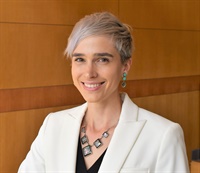Information
How Mindfulness Can Help You Avoid Legal Burnout, Continue to Competently Perform Legal Services, and Remain Ethically Compliant
Cynthia Sharp, Esq., Director of Attorney Development, The Sharper Lawyer

Veteran Attorney Cynthia Sharp works with motivated lawyers seeking to build sustainable law practices. After building and selling her boutique firm which she ran for over a quarter of a century, she embarked on a professional speaking and consulting career. For the past 10 years, she has dedicated herself to sharing practice building strategies and processes with solo and small firm attorneys throughout North America. In recognition of her contributions to the profession, the ABA GPSolo Division named her Trainer of the Year.
As Director of Attorney Development, Cindy has established an international presence as an author and speaker on the topics of law firm branding and marketing strategies. She also shares practice management techniques with an emphasis on ethical implications - lecturing extensively to law firms, bar associations and other legal organizations.
She can be reached via email at cindy@thesharperlawyer.com.
Becky Howlett, Esq, Legal Burnout Solution

Becky Howlett is an attorney, consultant, and educator dedicated to facilitating positive relationships with others and ourselves. After graduating from KU Law cum laude with a Tribal Lawyers Certificate in 2014, Becky focused her career on Indian Country advocacy, developing an expertise in federal Indian law and policy and tribal law. After experiencing burnout early on in her legal career, Becky felt compelled to do an in-depth study of meditation techniques and share these practices with others. In spring 2020, she co-founded legalburnout.com with the mission of empowering others to effectively manage their stress by promoting mindfulness practices in the legal field.

